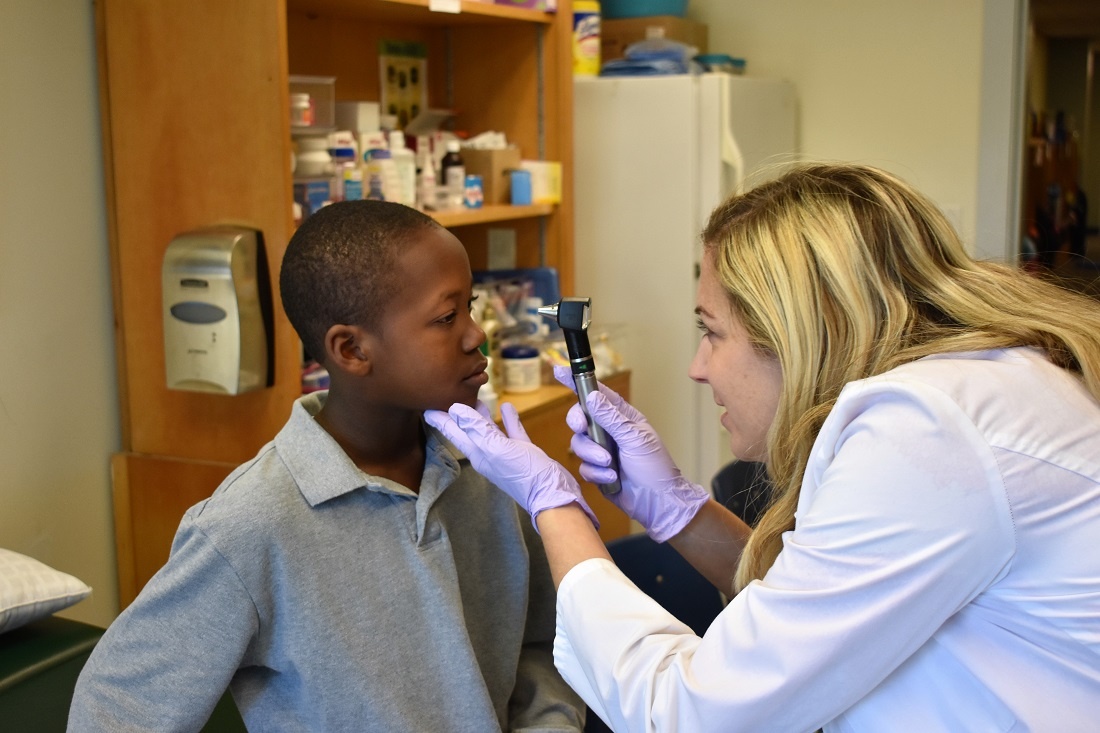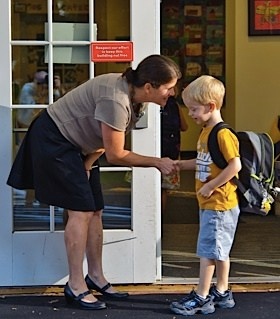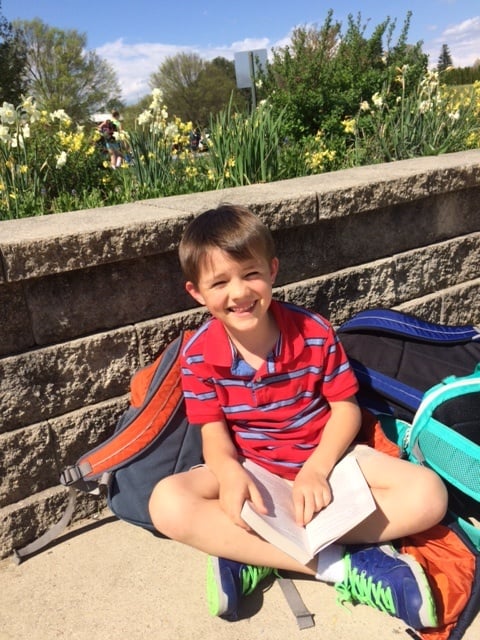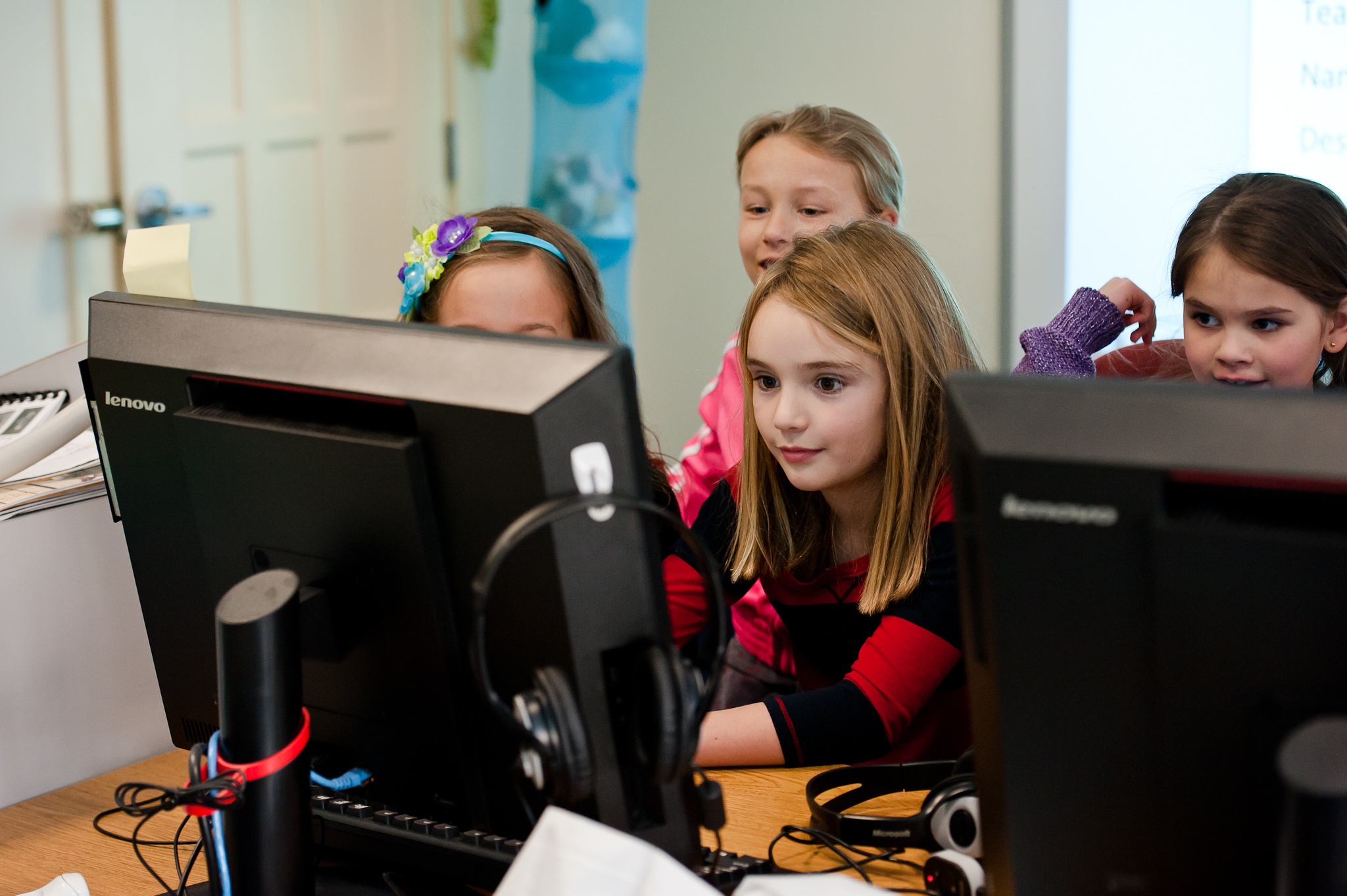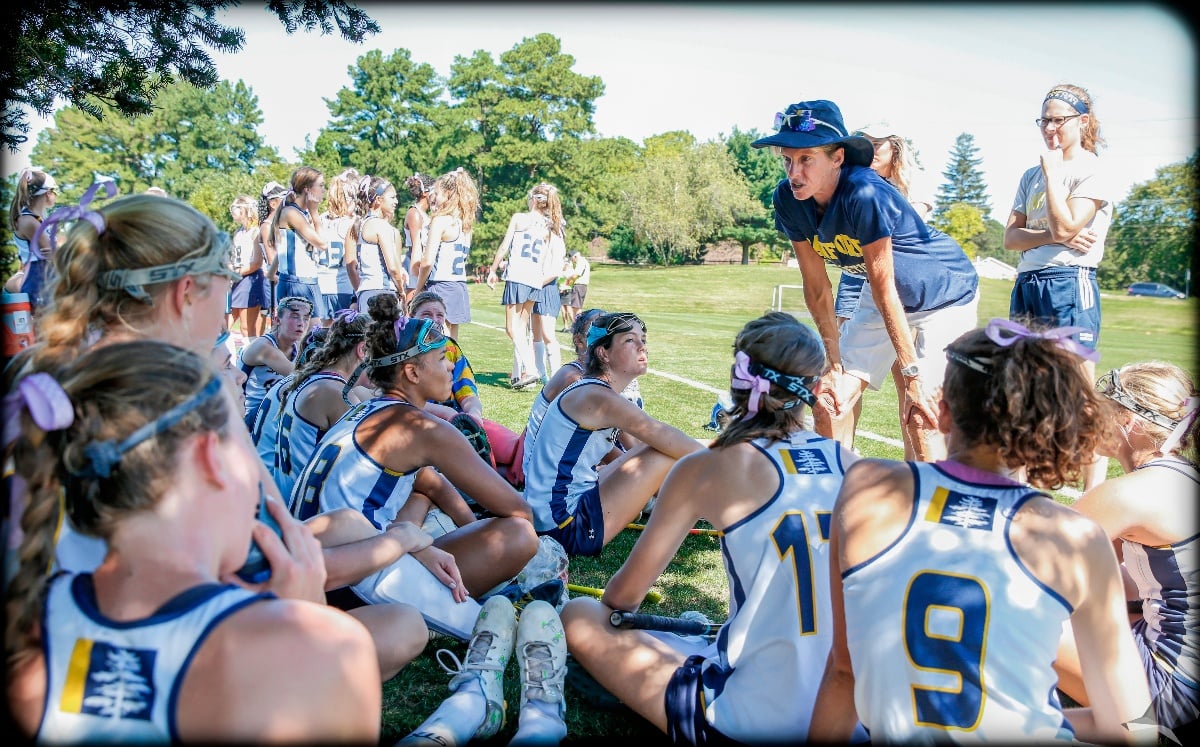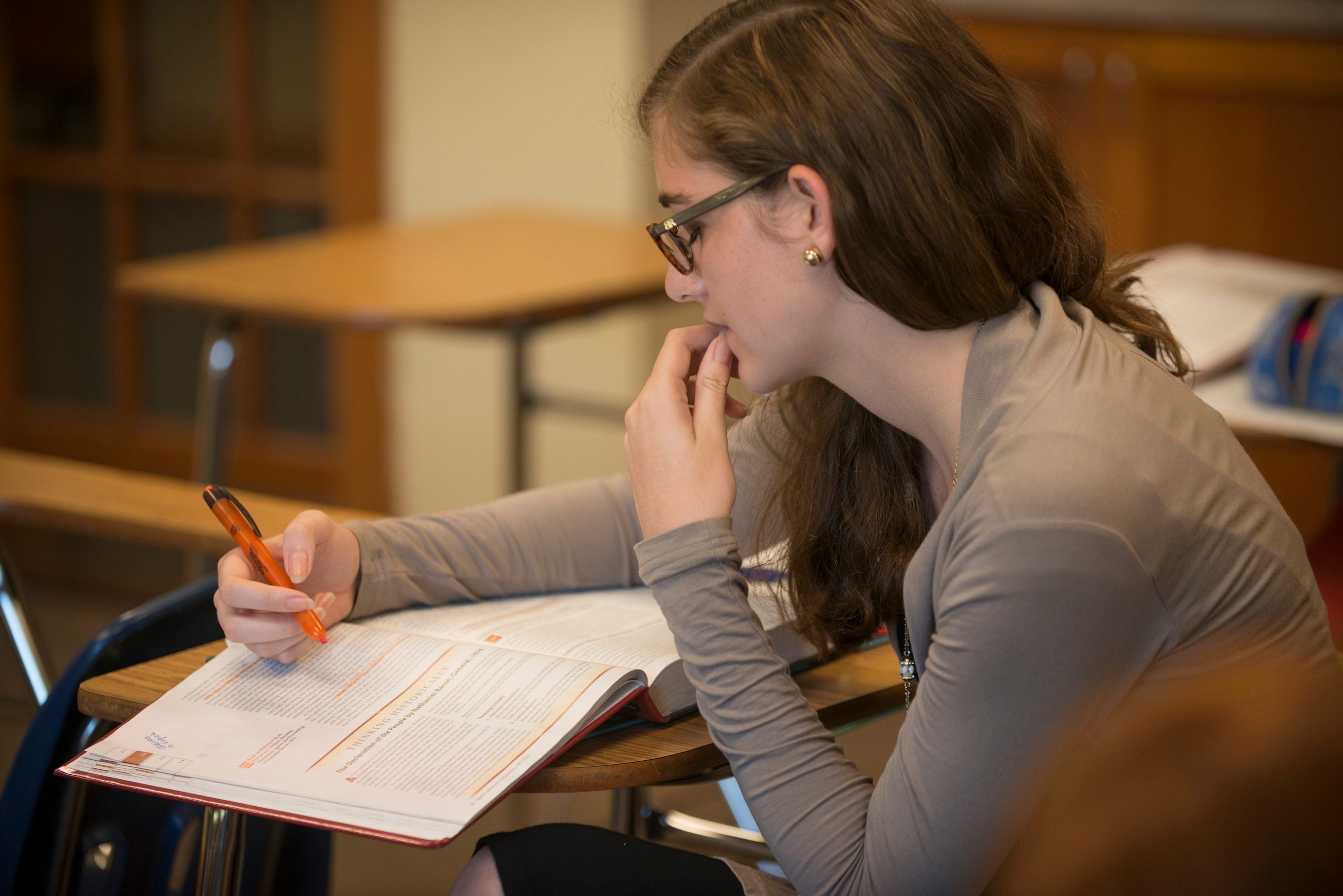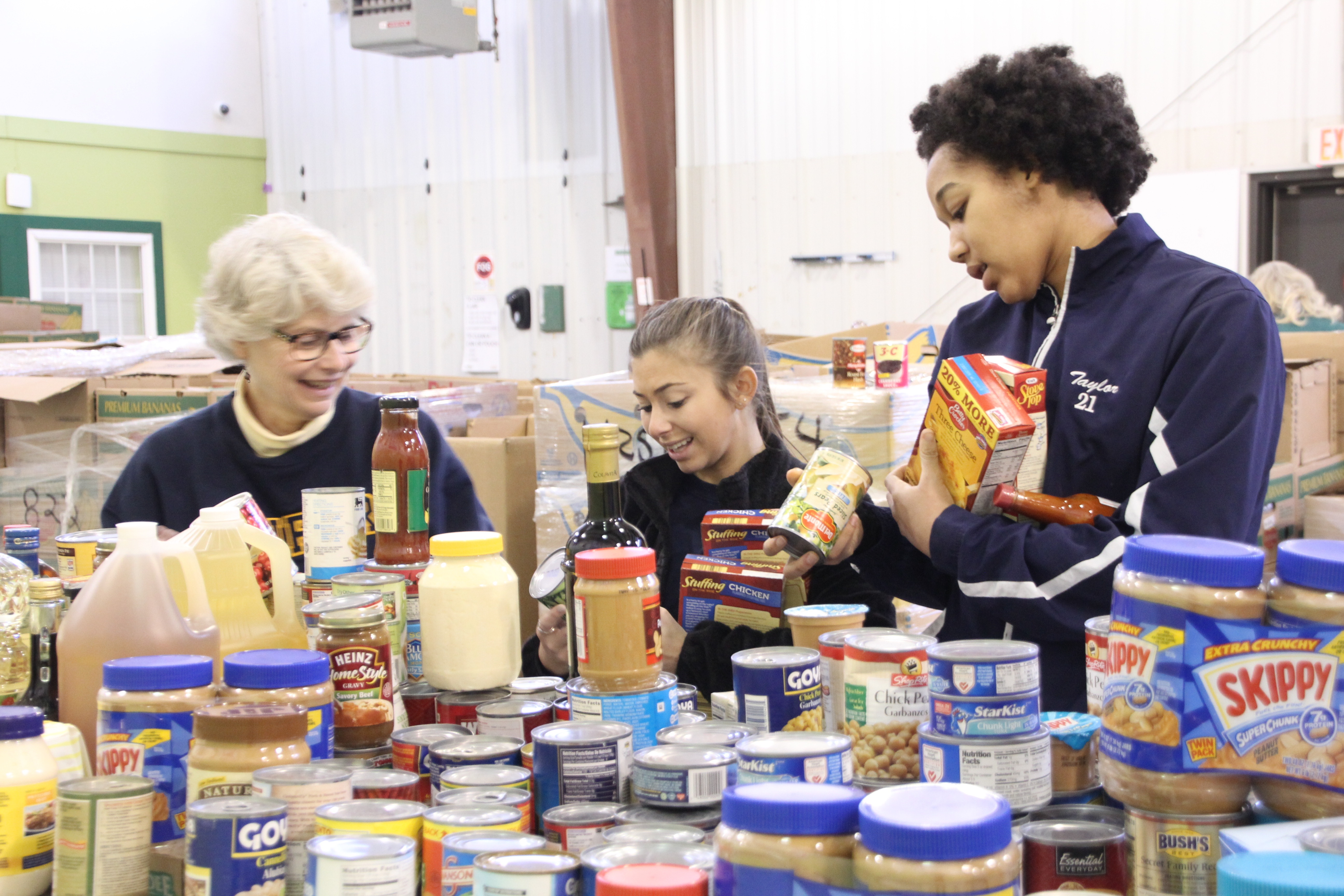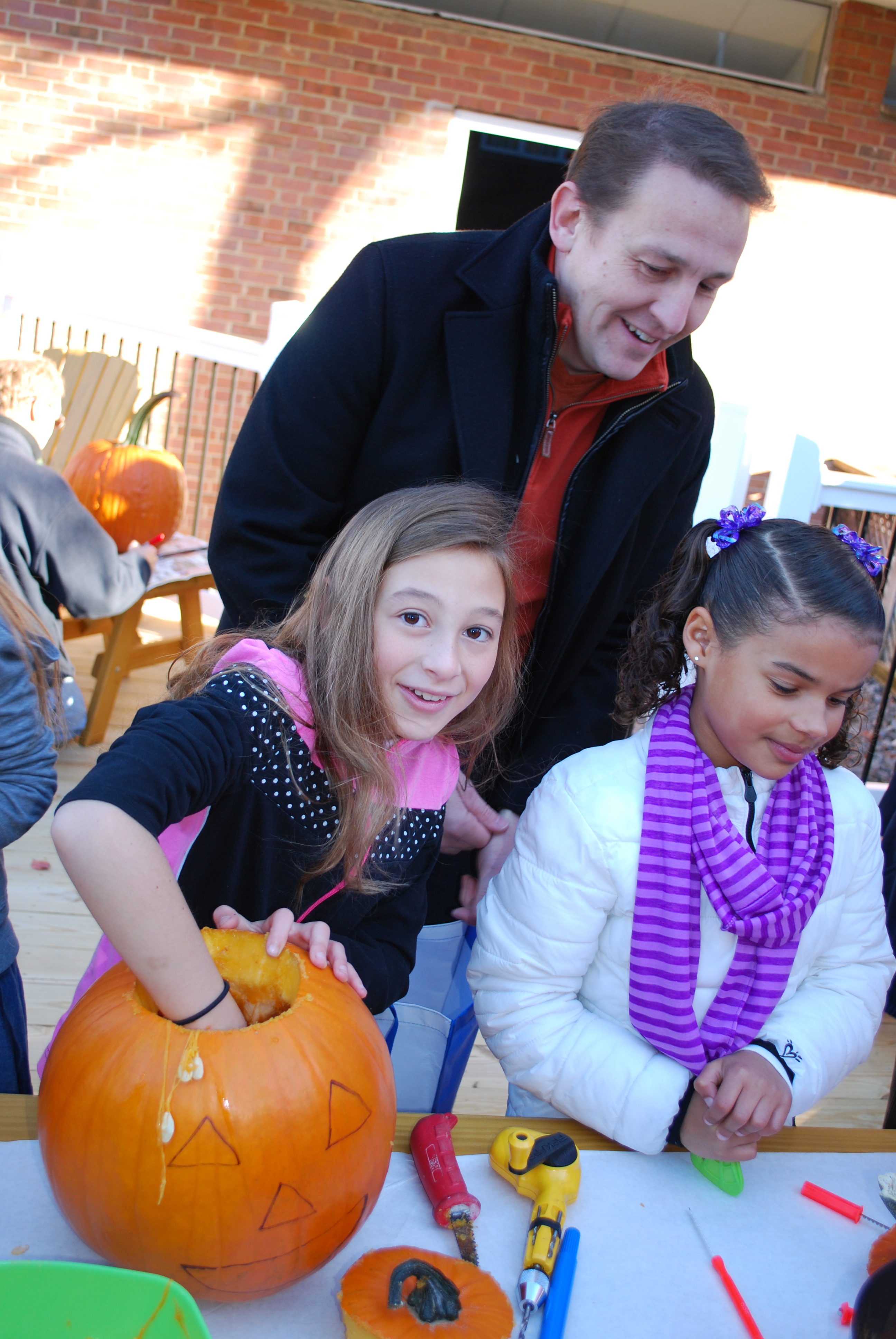Some days I wish that I could go back and do it all again. I remember the friends, teachers and coaches that made my time in school so special. I am reminded of the relationships that I enjoyed with the teams I competed with and the student groups that I planned activities with. I recall the excitement of traditions, whether it be Friday night basketball games or homecoming dances. Most days I’m just thankful for where it got me. Showing my gratitude to my alma mater can and should be easy. We want our alumni to know we cherish their memories and contributions to our school for so many reasons.
Staying in touch: what's the value of attending high school reunions?
Topics: Community
The School Nurse: Helping Students Advocate For Themselves
Ice packs, band-aids, fevers, upset stomachs—I do it all!
But the one part of school nursing that I find most rewarding is helping students become their own health advocates. The path to self-advocacy varies with each individual student and, of course, by age. A school nurse has the opportunity to be an extension of the lessons learned at home in order to help lay a solid foundation of health and wellness for our children.
In the elementary school years, the school nurse can reinforce the value of proper hygiene, good nutrition, sufficient sleep, and physical activity among young children. These are necessary not only to achieve success in their academic journey, but to foster healthy peer relationships.
During adolescence, students gain more independence at home and at school. They need to have adults they trust for guidance to make good choices. As I get to know students through my work, I can become one of those trusted adults who can offer recommendations to help a student advocate for themselves with their parents, teachers, and coaches.
Topics: Health & Wellness
How to create a stress free morning routine for you and your child
By the time your child arrives at school, are both of you already exhausted? Rushing, tears and raised voices in the morning create negativity that lasts well into the day. Starting the school day off in a peaceful, well-planned manner will make everyone feel in control, creating a positive mindset for what lies ahead.
A great morning starts at night! By creating a pre-bedtime routine, most of the morning’s tasks will already be complete.
- Lay out clothing for the day ahead, including coats and shoes. End scrambling for lost items or early-morning disagreements over outfits. Involve your child, so they do not balk when it is time to get dressed.
- Put items to be taken to school in a convenient location. This includes homework, backpacks, musical instruments, sports gear, permission slips- anything that they will need the next day. Consider creating a checklist and hang it by the door-—and following this plan yourself.
- Prepare lunches and plan out the morning’s breakfast.
- Discuss any schedule changes for the day ahead. Include after-school plans and pick-up times.
- Have your child bathe before bed. One less task for the morning.
- Get to bed early. This means parents, too. We are all at our best with plenty of rest!
Create a morning routine that is as simple as possible.
- Rise before your child and do something for yourself. Take time for a spiritual reading, exercise, snuggle or get yourself dressed in peace. You will start the day feeling more in control and emotionally centered, allowing you to deal with your child from a positive place.
- As age appropriate, create a morning schedule and list tasks to be completed by your child. Allow them to feel in control by making decisions on how they will get themselves ready. Try posting a timetable in a conspicuous spot.
- Electronics remain off. Televisions, games and social media can become a distraction for children, as well as parents.
Topics: Parenting Tips
Private School Education: A student's reflection
Private schools will always hit you with the same buzzwords: Small class sizes, rigorous academic curricula, engaging teachers, and accessible extracurriculars. They aren’t wrong. These core tenets of private school education are what make private schools so attractive to parents wanting the best for their children and for students who are eager to grow. Yet, after being in a private school for twelve years I have come to realize that the most valuable aspects of private schooling are the most intangible ones.
Private school students are exposed to new ways of thinking.
A product of the relationships I have formed with my teachers is the level of respect and maturity they both treat me with and expect from me in return. My teachers do not shy away from delving into conversations about real-world issues out of fear that I cannot handle them. Rather, this type of discourse is encouraged, and with it comes the expectation that the conversation will remain civil, that all perspectives will be regarded seriously, and that the end goal is to learn from one another rather than to prove someone wrong. I’ve learned that different perspectives are not wrong, or offensive, just different, and that all are to be treated with respect. As a result of this mutual comfort I am not hesitant to share my opinions or have in-depth conversations with people much older than I, which is something that I value as I prepare to graduate high school and expose myself to so many different types of people.
Earlier this week, I had one of my weekly conversations with my sister. She has two teenage daughters and a younger son named William. Her girls have always been eager readers, impressing me with the conversations around the novels they have read. As she and I were talking, she mentioned that William was sitting right next to her reading a book.
“So,” I asked, “What is he reading?”
“Well,” she paused and answered, " all William reads is non-fiction about world history. I’m sort of alright with it, but shouldn’t he be reading fiction too? He is missing out on so many wonderful stories.”
I answered, “He’s interested in world history, that’s wonderful! Let him read whatever he wants. ”
Digital Citizenship: Developing Good Character Online
Digital citizenship is a way to teach students how to use technology responsibly and respectfully—and it’s an important aspect of developing good character in our students. Because using digital media is a part of our everyday lives, we teach them how to manage their school Gmail accounts and Google Apps for Education for their learning. We also talk with them about how to manage themselves online, especially when using social media.
As educators, we think a lot about social media and how to use it effectively and responsibly. We work with our students to make sure they know how important it is for them, too. The guidelines our school uses for our own posts are designed to create a positive atmosphere online. We teach appropriate technology use to develop good digital citizens.
Topics: Health & Wellness, Parenting Tips, STEM
Modeling Good Sportsmanship – Everyone is a Teacher!
Too many times, headlines revolve around negative behavior taking place at sporting events involving coaches, players, parents or spectators. As a lifelong athlete and career educator in the field of physical education and athletics, my experiences in sports as a participant, teacher, coach, and athletic director have been many and varied. I have experienced, and witnessed, winning and losing at all levels.
When the school year ends, there is often a celebration of students’ year-long achievements. But when students walk out of the school’s door for summer, what happens over the next 10 weeks can be just as important. As a parent and educator, I wonder what I can do for my children to keep them academically engaged and not just staring at a screen. While there are options to fill every perceived need a child may have from day camps, sports camps, overnight camps, religious camps, and STEM camps, summer enrichment programs may be overlooked by parents. Parents often want their children to maintain academic readiness or continue to move forward. While younger students collaborate in reading and math groups, high school classes are offered to broaden one’s experience or allow focus on preparing for college testing.
When looking at an institution to supplement academic gains, there are four items to consider:
When you choose a private school for your child, you’re not only investing in a rigorous and broad education. You’re also choosing to be a part of a community that will develop your child’s character and leadership qualities. The financial commitment is a serious one, yet it comes with a unique opportunity—the chance to give back to the school and the community. Students and parents, as well as alumni and their families, all participate in “paying it forward” to the school and the greater community.
Community service is part of a strong private school’s curriculum. Students at all age levels benefit from age-appropriate service learning.
- Students develop a sense of responsibility and pride.
- Service programs build new skills and create empathy for others.
- Studies have shown that when community service is included in learning, student achievement increases.
- Volunteering gives young people the chance to apply what they've learned in the classroom to real human needs.
Parents and alumni also become involved in the life of the school, with many benefits for all involved.
- Volunteering in the classroom and at all-school events strengthens the school community.
- Dynamic and inclusive volunteer programs assure there are opportunities for all interests, abilities, and availability.
- Drives for clothing, food, school supplies, and other items encourage collaboration.
- Community service activities lead to natural discussions about philanthropy.
Topics: Community
Parent Involvement Improves Your Child’s Educational Experience
When looking for educational options for your child, it is important to select schools that not only provide a quality education but also welcome parent volunteerism. Look for options that meet your own schedule, whether you are working outside the home or are available during the school day. Schools should share their expectations of parents, as well as opportunities for them to become involved.
Topics: Community

